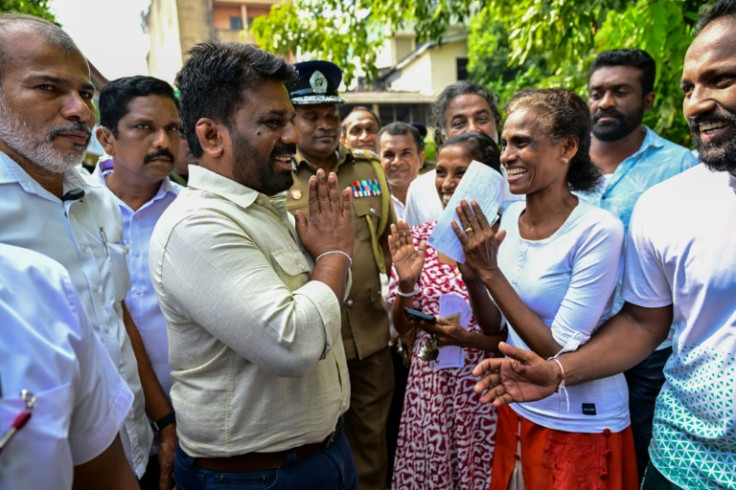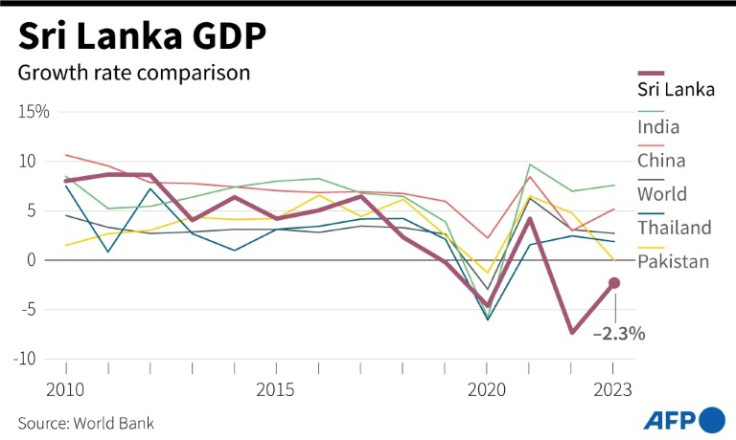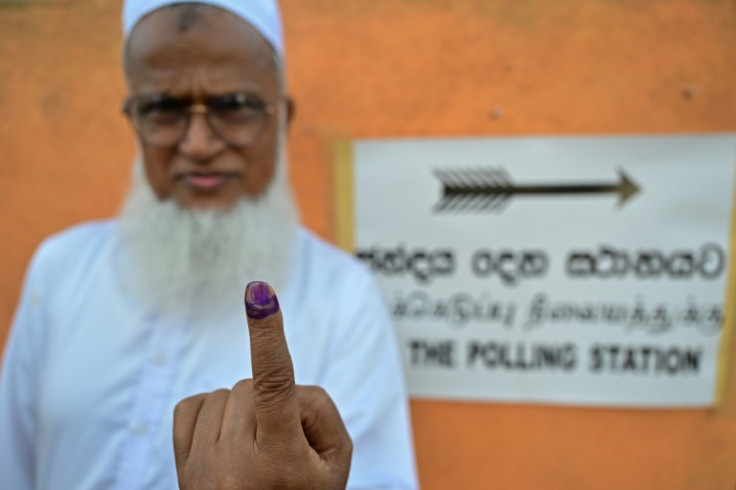Landslide Win For Sri Lanka President's Leftist Coalition In Snap Polls

Sri Lankan President Anura Kumara Dissanayake thanked voters Friday for delivering his leftist coalition a landslide victory in snap parliamentary elections that repudiated establishment parties blamed for triggering an economic crisis.
Dissanayake, a self-avowed Marxist, swept September presidential elections on a promise to combat graft and recover stolen assets, two years after a slow-motion financial crash imposed widespread hardships on the island nation.
His decision to immediately call polls and secure parliamentary backing for his agenda was vindicated on Friday, with his National People's Power (NPP) coalition taking at least 159 seats in the 225-member assembly -- exceeding a two-thirds majority.
"Thank you to all who voted for a renaissance," Dissanayake said in a brief statement on social media platform X.
The coalition had a monumental 61.5 percent of the vote while opposition leader Sajith Premadasa's party was well behind with only 17.6 percent.
"People voted to get rid of corruption and a corrupt system," IT professional Chanaka Rajapaksha, who supported the NPP in the polls, told AFP on Friday.
In a sign of the magnitude of support for Dissanayake, his party won the most votes in the northern district of Jaffna, dominated by the island's minority Tamil community, for the first time since independence from Britain in 1948.
Voter turnout was estimated at under 70 percent, less than the 80 percent of eligible voters who cast a ballot in September's presidential polls.
Dissanayake, the 55-year-old son of a labourer, had been an MP for nearly 25 years and was briefly an agriculture minister but his NPP coalition held just three seats in the outgoing assembly.
He stormed to the presidency after successfully distancing himself from successive leaders blamed for steering the country to its 2022 economic crisis.
The financial crash was the worst in Buddhist-majority Sri Lanka's history as an independent nation, sparking months-long shortages of food, fuel and essential medicines.
The resulting public anger culminated in the storming of then-president Gotabaya Rajapaksa's compound, prompting his resignation and temporary exile.
Dissanayake's pledge to change a "corrupt" political culture has resonated with millions of Sri Lankans struggling to make ends meet following tax hikes and other austerity measures imposed to repair the nation's finances.
"Very happy about this victory," voter Nilusha Nilmini told AFP after the scale of the win became clear.
"All this time, the country was governed by thieves, robbers and corrupt people. I am very happy that the crooks are out and a clean government has been established."
Dissanayake's JVP party, the main constituent in the NPP coalition, led two insurrections in 1971 and 1987 that resulted in at least 80,000 deaths.
But he was sworn in after presidential polls described as one of the island nation's most peaceful elections.
Portraits of communist luminaries including Karl Marx, Vladimir Lenin, Friedrich Engels and Fidel Castro hang in Dissanayake's office in the capital.
Since his rise to popularity, however, he has softened some policies, saying he believes in an open economy and is not totally opposed to privatisation.
Dissanayake had campaigned on a pledge to renegotiate a controversial $2.9 billion International Monetary Fund (IMF) bailout secured by his predecessor.
But since taking office, he has resolved to maintain the existing agreement with the international lender.
The country's main private sector lobby, the Ceylon Chamber of Commerce, has tacitly supported Dissanayake and his programme.
Sri Lanka's stock exchange has gained over 16 percent in the eight weeks since Dissanayake won the presidency.
Poll monitors and analysts said Thursday's election had failed to generate the level of enthusiasm -- or violence -- seen at previous polls.
The outgoing parliament was dominated by the party of Mahinda and Gotabaya Rajapaksa, two brothers from a powerful political clan who have both served as president.
Neither Rajapaksa is contesting, but Mahinda's son Namal, a former sports minister, is seeking re-election.



© Copyright AFP 2025. All rights reserved.





















